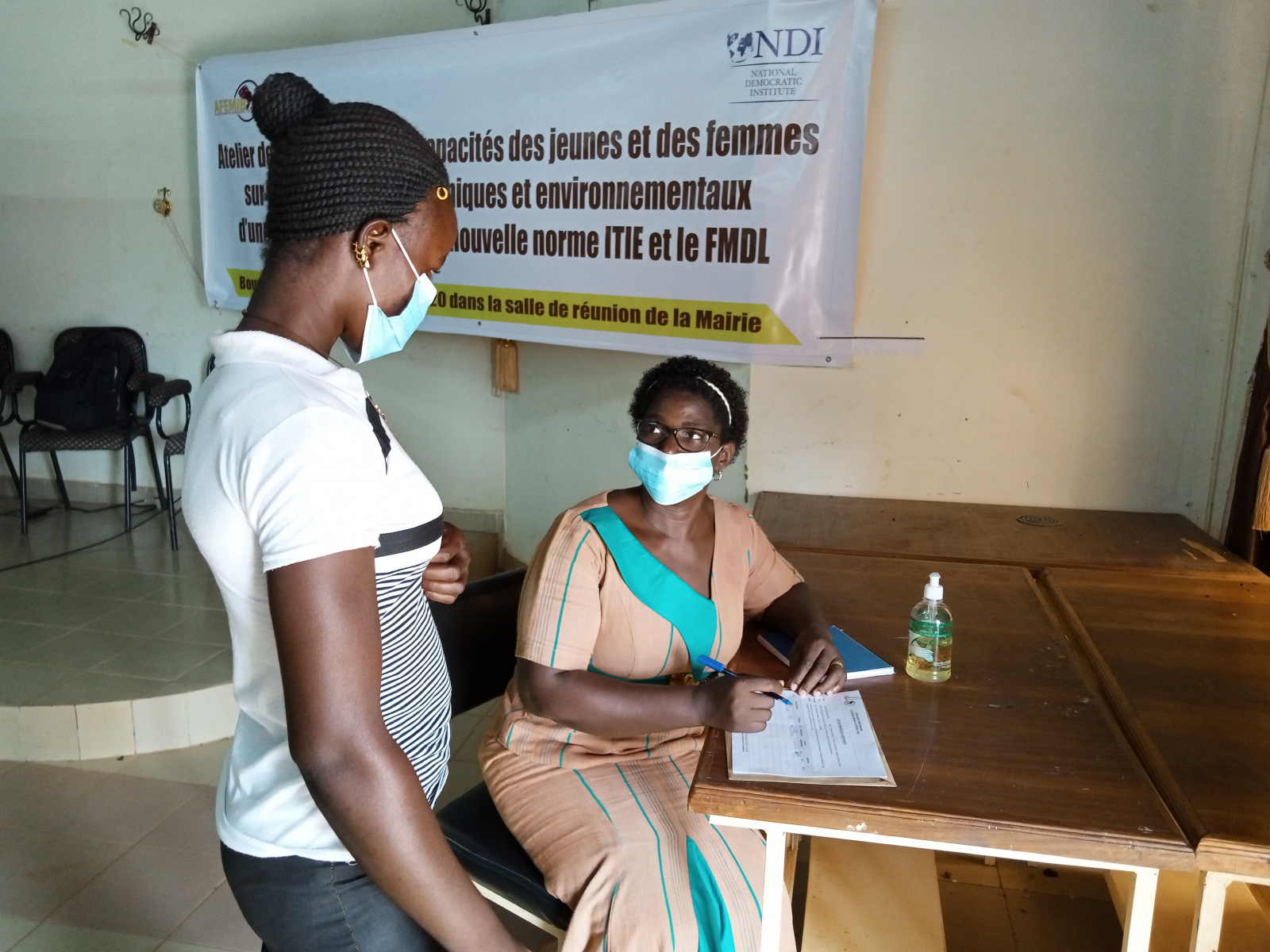
SHARE
Burkina Faso is rich in mineral resources; its deposits of gold, zinc, copper and manganese are found in an arc that spans the country’s southeast to its northwest regions. It is a globally-ranked producer of gold -- both industrial and artisan-mined -- with more than one million Burkinabe citizens employed in this sector.
In 2008, a multinational mining corporation leased mining rights in Kalsaka (a commune in northwest Burkina Faso). The corporation prohibited artisanal miners from accessing their former sites, and farmers from their agricultural lands. A community member noted:
The only thing that we receive in return from mining exploitation in our zone, is the gaping holes, the polluted rivers, the dust which causes diseases, the forced evictions from our land to allow mining exploitation to proceed. We don't know to whom we are going to refer to face this injustice. Our voice is not heard, our complaints are not handled and nobody is hearing us.
When large mining firms open sizeable extraction sites, they often displace artisanal mining and cut off local community members from their previous jobs in the sector, disrupting local economies and political dynamics. They frequently drive up prices and fail to generate promised local business and employment opportunities in support of their mining operations. Women who supplement family income with gold panning are disparately affected by these changes. They lose access to capital, and are also left alone to care for children when men must seek employment elsewhere.
In 2008, the national government in Ouagadougou joined the Extractive Industry Transparency Initiative (EITI), which oversees the global standard to promote open and accountable management of extractive resources. EITI validates commitments to good governance practices and regularly produces a country scorecard. To comply with EITI regulations, the government established a national multi-stakeholder group to manage the implementation of EITI guidelines and policies. It began collecting and publishing data on the management and activities of the sector in order to support a public debate on how to improve mining governance.
In 2014-2015, the government engaged in a flurry of reforms, creating a National Mining Commission and a new mining code. The Code encouraged mining companies to create environmental and social impact plans that incorporated local input and commitments to employ local businesses. It also established a basket fund for local governments from taxation on mining profits and a government transfer of a percentage of its collected royalties on mining concessions to remediate the industry’s harmful local impacts. This included funding through local budgets for environmental rehabilitation and clean-up, improved security at artisanal mining sites and compensation for economic displacement.
Unfortunately, there were significant delays with the implementation of these reforms and communities affected were not initially consulted. To fulfill the government’s commitment to EITI, the National Democratic Institute worked with EITI-Burkina Faso to implement their action plan. To this end, NDI brought together national and local officials, community leaders and mining companies to chart a course forward. NDI also supported civil society organizations to educate other community groups and citizens about the EITI process. In addition, NDI implemented the following to improve mining governance:
-
NDI provided support to EITI-Burkina Faso on communications and best practices in sharing data on digital media platforms.
-
NDI developed a training curriculum that included every stakeholder: teaching beneficial ownership to mining companies and civil servants; training local committees and civil society how to conduct environmental impact studies for mining projects; and showing mayors and city administrators how to integrate environmental protections, social assessments and resettlement action plans into the implementation of mining projects.
-
NDI trained stakeholders on how to integrate gender into decision-making related to mining -- of particular importance given the disparate impact.
-
NDI improved local officials’ capacity to collect revenue and adjudicate mining governance; and civil society’s reporting and data disclosure abilities.
NDI facilitated stakeholder dialogues on mining industry impacts and solutions, which resulted in several major improvements in information sharing, including:
-
Communication channels that allow for timely transmission of environmental degradation information -- when mining operations fail to respect environmental rules and community rights -- from the local level to appropriate government agencies;
-
An improved understanding at the local level of permit validation; and
-
Reports issued by NDI civil society partners on the importance of the EITI process in Burkina Faso, fully outlining the relevance of environmental and social impact assessments; and gender inclusion.
Importantly, NDI identified and empowered the most marginalized -- and the most affected -- by mining concessions. Women, youth and minority ethnic communities are now able to articulate to extractive industry representatives the different, localized impacts on their groups, and to request compensation when their livelihoods or local environment are negatively affected.
A community member expressed their gratitude:
We thank the mayors of communes and NDI for having organized these dialogue frameworks. Finally, our voices are heard. We know now that we can count on civil society leaders to relay our complaints. We finally meet face to face with the responsible extractive industries operators in a setting where our problems can be submitted without fear. These meetings allowed us to know what is provided for by law.
Authors: Lauren Van Metre is a Senior Advisor for Peace, Security and Democratic Resilience for Peace and Security, Priority Initiatives team and Homere Mutoro is a Resident Technical Advisor for the Central and West Africa team
NDI is a non-profit, non-partisan, non-governmental organization that works in partnership around the world to strengthen and safeguard democratic institutions, processes, norms and values to secure a better quality of life for all. NDI envisions a world where democracy and freedom prevail, with dignity for all.



